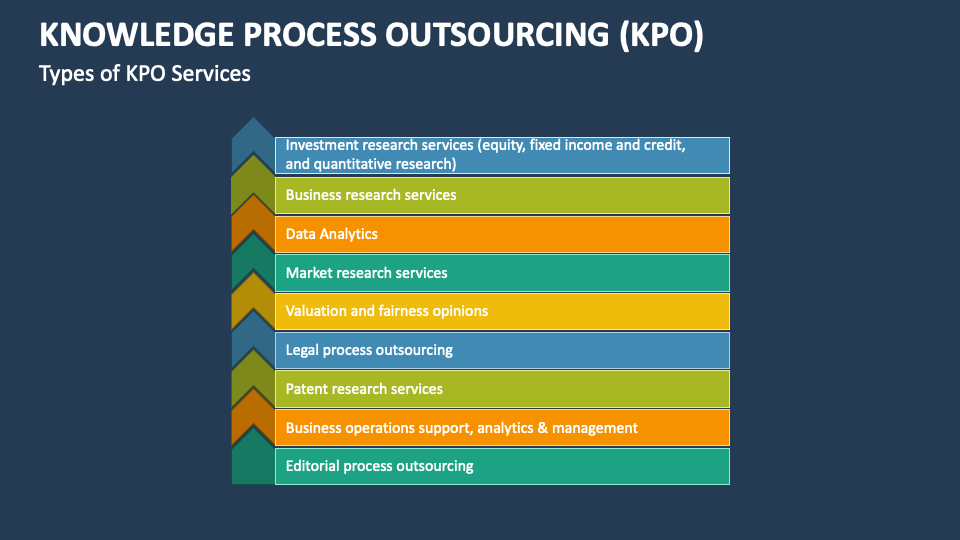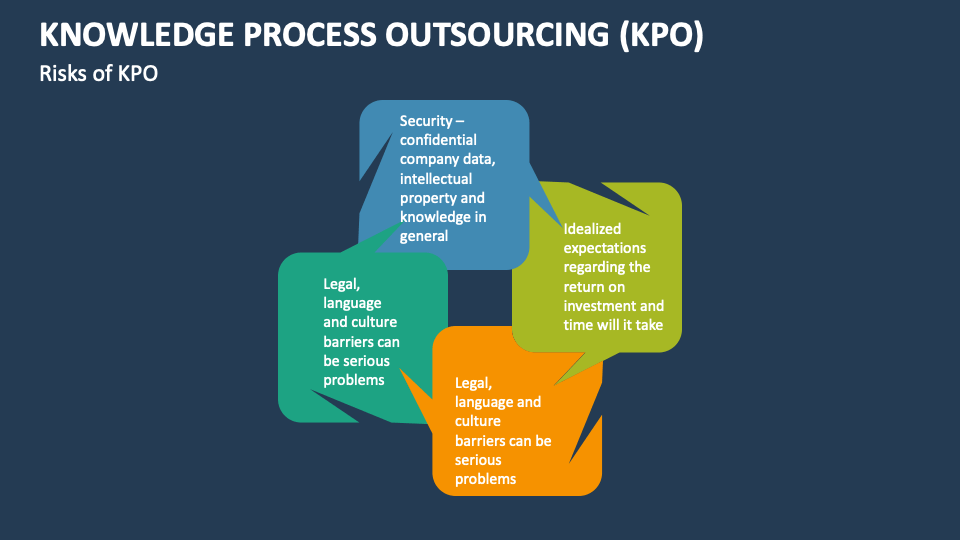Understanding Knowledge Process Outsourcing (KPO): Benefits and Key Insights
In today’s dynamic business environment, companies are constantly seeking ways to enhance their efficiency and remain competitive. One strategy that has gained significant traction is Knowledge Process Outsourcing (KPO). Unlike traditional outsourcing, KPO involves the outsourcing of knowledge-intensive tasks that require specialized expertise. This approach has proven particularly beneficial for industries such as technology, finance, pharmaceuticals, and legal services. By leveraging KPO, companies can access high-level expertise without the need to maintain an in-house team, leading to cost savings and enhanced innovation.
Engaging in KPO can be a game-changer. By outsourcing complex tasks such as data analytics, market research, and legal services, companies can focus on their core competencies while benefiting from the specialized knowledge that KPO providers offer. In this article, we delve into the benefits and key insights of KPO, exploring how it can drive growth and innovation for businesses across various sectors.
What is Knowledge Process Outsourcing (KPO)?
Knowledge Process Outsourcing (KPO) refers to the practice of outsourcing tasks that require specialized knowledge and expertise. These tasks are often complex and involve critical decision-making processes that can significantly impact a company’s operations and strategy. Unlike Business Process Outsourcing (BPO), which focuses on routine tasks such as customer service and data entry, KPO involves activities that require a high level of expertise, such as financial analysis, market research, and legal services.
As of 2023, the global Knowledge Process Outsourcing (KPO) market was valued at approximately $57.2 billion and is expected to reach $238.7 billion 2032, driven by the increasing demand for specialized knowledge-based services in industries such as finance, healthcare, and legal services. The statistics are based on reports from market research firms GlobeNewswire.

Image source: GlobeNewswire
In businesses, knowledge process outsourcing can be used to manage tasks that require specialized technical knowledge, such as software testing, data analytics, and cybersecurity. By outsourcing these tasks to a KPO provider, companies can access a global talent pool and gain insights that may not be available in-house. This not only enhances efficiency but also allows the company to stay competitive in an increasingly complex market.
Knowing the key components of Knowledge Process Outsourcing (KPO) services can help you maximize the benefits of this strategic approach.

Image source: Collidu
Looking For a Trusted Tech Partner?
We’ll help you decide on next steps, explain how the development process is organized, and provide you with a free project estimate.
The Benefits of Knowledge Process Outsourcing
The benefits of KPO are numerous, particularly for businesses that require specialized expertise. Here are some of the key advantages:
![9 Types Of Outsourcing: Pros & Cons [Identify The Best Fit] - Pearl Talent Blog](http://cdn.prod.website-files.com/664678c4bb2376a19eee41f5/664678c4bb2376a19eee44fe_34RBbof148KKv2dm2YswccNC1HLYQ6P_EfNiUzWwKiV87ACXBRS7Q4j5ucdil6POwAGTssoeHSR6Nz4svXqlzmfETv8InJckkhhdMdlYkbdOXx6cD-q64jAD9EXmrHgJbq0U0Mv0X6SP5_vQHQJlIWI.png)
Image source: Pearl Talent
1. Access to Specialized Knowledge
One of the primary benefits of knowledge process outsourcing is the ability to access specialized knowledge that may not be available within the organization. KPO providers often have deep expertise in specific areas, such as data analytics, legal services, and market research. This expertise can be invaluable for companies that need to navigate complex challenges and make informed decisions.
For example, a software development company may outsource its data analytics to a KPO provider with advanced capabilities in this area. This allows the company to gain insights that would be difficult or time-consuming to obtain in-house, leading to more informed decision-making and better outcomes.
2. Cost Efficiency
Another significant benefit of knowledge process outsourcing is cost efficiency. Maintaining an in-house team of experts can be expensive, particularly in fields that require highly specialized knowledge. By outsourcing these tasks to a KPO provider, companies can reduce their operational costs while still benefiting from expert insights.
In the case of partnering with a software development company, KPO can lead to substantial cost savings. Instead of investing in expensive training and development programs to build an in-house team, the company can simply engage a KPO provider with the necessary expertise. This not only reduces costs but also allows the company to allocate its resources more effectively.
3. Enhanced Focus on Core Competencies
Outsourcing knowledge-intensive tasks to a KPO provider allows companies to focus on their core competencies. This is particularly important in industries where innovation and rapid product development are critical to success. By offloading complex tasks to a KPO provider, companies can concentrate on what they do best, whether it’s software development, product innovation, or customer service.
Collaborating with a software development company, knowledge process outsourcing can free up valuable resources that can be redirected towards product development and innovation. This enhanced focus on core competencies can lead to faster product launches, improved customer satisfaction, and a stronger competitive position in the market.
4. Improved Scalability
Knowledge process outsourcing also offers improved scalability. As businesses grow and evolve, their needs for specialized knowledge and expertise may change. KPO allows companies to scale their operations up or down based on their current needs, without the constraints of maintaining a large in-house team.
In the technology sector, where rapid growth is common, KPO provides the flexibility needed to adapt to changing market conditions. A software development company, for example, may need to rapidly scale its data analytics capabilities to support a new product launch. By engaging a KPO provider, the company can quickly access the necessary expertise without the delays and costs associated with hiring and training new staff.
Have a Project Idea in Mind?
Get in touch with Savvycom’s experts for a free consultation. We’ll help you decide on next steps, explain how the development process is organized, and provide you with a free project estimate.
Challenges and Risks Associated with Knowledge Process Outsourcing
While knowledge process outsourcing offers numerous benefits, it’s not without its challenges and risks. Businesses considering KPO should be aware of these potential pitfalls and take steps to mitigate them:

Image source: Collidu
1. Data Security and Privacy
Outsourcing knowledge-intensive processes often involves sharing sensitive data with external providers. This creates potential risks related to data security and privacy. It’s essential to choose a KPO provider with robust security measures in place to protect your data. This includes encryption, secure data transfer protocols, and compliance with relevant data protection regulations.
2. Quality Control
Maintaining consistent quality can be challenging when outsourcing complex tasks to an external provider. It’s important to establish clear quality standards and performance metrics from the outset and to monitor the provider’s performance regularly. Regular audits, feedback sessions, and continuous improvement initiatives can help ensure that quality standards are met.
3. Dependency on the Provider
Over-reliance on a KPO provider can create risks, particularly if the provider is not delivering the expected value or if the relationship deteriorates. To mitigate this risk, it’s advisable to have a backup plan in place, such as the ability to bring the outsourced processes back in-house or to switch to a different provider if necessary.
4. Cultural and Communication Barriers
Cultural and communication barriers can pose challenges in a KPO relationship, particularly when working with providers in different countries. These barriers can lead to misunderstandings, delays, and misalignment of goals. To overcome these challenges, it’s important to invest in cultural training, establish clear communication protocols, and foster a collaborative working relationship.
5. Regulatory and Compliance Risks
Outsourcing knowledge-intensive processes can create regulatory and compliance risks, particularly in highly regulated industries. Businesses must ensure that the KPO provider is fully compliant with all relevant regulations and industry standards. Regular audits and compliance checks can help mitigate these risks.
Get in touch with Savvycom for a free consultation. We’ll help you decide on next steps, explain how the development process is organized, and provide you with a free project estimate.
The Future of Knowledge Process Outsourcing
The future of Knowledge Process Outsourcing looks bright, with several trends shaping its evolution. As businesses continue to navigate increasingly complex environments, the demand for specialized knowledge and expertise is expected to grow. Here are some key trends that will likely influence the future of KPO:
1. Increased Adoption of AI and Automation
Artificial intelligence (AI) and automation are set to play a significant role in the future of KPO. While KPO has traditionally relied on human expertise, the integration of AI and automation can enhance the efficiency and accuracy of knowledge-intensive processes. For example, AI-powered data analytics tools can analyze vast amounts of data in real-time, providing insights that would be impossible for human analysts to achieve.
However, the rise of AI and automation does not mean that human expertise will become obsolete. Instead, the future of KPO will likely involve a hybrid model, where AI and automation complement human expertise, leading to more efficient and effective processes.
2. Growing Importance of Data Security
As KPO involves the handling of sensitive data, data security will become increasingly important. Businesses will need to ensure that their KPO providers have robust security measures in place to protect their data. This will likely lead to increased investment in cybersecurity and the adoption of advanced security technologies.
Savvycom’s Cyber Security solutions are well-positioned to address these growing concerns, offering businesses peace of mind when outsourcing knowledge-intensive processes.
3. Shift Towards High-Value Services
As the KPO market matures, there will be a shift towards high-value services that require deep expertise and advanced skills. Businesses will increasingly seek KPO providers that can offer not just operational support but also strategic insights and innovation. This shift will likely lead to the emergence of specialized KPO providers with niche expertise in areas such as AI, big data, and digital transformation.
4. Global Talent and Virtual Teams
The rise of remote work and virtual teams will continue to shape the KPO industry. Businesses will have access to a global talent pool, enabling them to tap into expertise from around the world. This will likely lead to the increased use of virtual teams, where KPO providers collaborate with in-house teams across different geographies.
Savvycom, a leader in software development and technology consulting, offers a range of services that complement the benefits of KPO. Whether you need specialized expertise in data analytics, cybersecurity, or digital transformation, Savvycom’s team of experts is equipped to deliver high-quality solutions that drive business growth. By partnering with Savvycom, companies can leverage the power of KPO to enhance their efficiency, innovate faster, and stay competitive in an ever-evolving market.
For more information on how Savvycom can support your KPO needs, visit our homepage.



